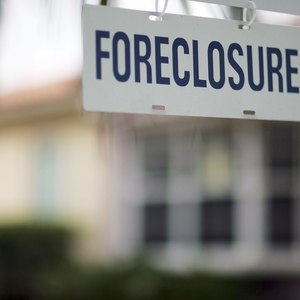
In an escrow agreement, each month you pay your mortgage lender extra money that the lender deposits in an account. When your property taxes and home insurance bills are due, your lender dips into this account to pay these bills on your behalf. Throughout the year, you may generate a surplus in your escrow account, money that sits there until your lender needs it to pay these bills. Don't expect to receive any of those dollars if you stop making your mortgage payments and lose your home to foreclosure.
Escrow Surplus
Federal law requires your lender to provide you a refund if your escrow account has a balance of more than $50 at the end of the year. This escrow surplus happens when your lender overestimates the amount of your property taxes and home insurance. Your lender will send you an escrow analysis each year, and this analysis will state whether you have a year-end surplus.
Missed Payments
If you miss enough mortgage payments -- this will vary by lender -- your lender might start foreclosure proceedings against you. Through the foreclosure process, your lender can take ownership of your home, evicting you and selling your home on the open market. You might have an escrow surplus in your account when this happens, but you probably won't receive a refund if you've stopped making your monthly mortgage payments.
Good Standing
Your mortgage account must be in good standing if you want to receive your escrow surplus. If you've missed payments, your lender is allowed to hold onto your surplus. That's because when you miss your mortgage payments, you're also not sending in the extra dollars each month that your lender needs to fund your escrow account. Your lender will still need to pay your home insurance and property taxes on your behalf until they take over your home through foreclosure. The surplus can help them meet these financial obligations.
Foreclosure
If you do lose your home to foreclosure, don't expect your lender to send you a check for any surplus or left-over funds in your escrow account. Your lender instead will use any money in your escrow account to pay your home's property taxes and insurance. Lenders are not allowed to sell your property if these bills aren't paid. If there is still money left in your escrow account after your lender pays your bills, your lender will use it to reduce the mortgage debt that you still owe.
References
- U.S. Department of Housing and Urban Development: Escrow FAQs
- Cornell Law School. "Escrow." Accessed March 15, 2020.
- Los Angeles County Consumer and Business Affairs. "Escrow." Accessed March 15, 2020.
- Consumer Financial Protection Bureau. "What Is an Escrow or Impound Account?" Accessed March 15, 2020.
- The People's Law Library of Maryland. "Rent Escrow: When the Landlord Fails to Make Repairs." Accessed March 15, 2020.
- California Department of Business Oversight. "Online Escrow Fraud Questions and Answers." Accessed March 15, 2020.
- Consumer Financial Protection Bureau. "Mortgages Key Terms." Accessed March 15, 2020.
- FindLaw. "Connecticut Security Deposit Laws." Accessed March 15, 2020.
Writer Bio
Don Rafner has been writing professionally since 1992, with work published in "The Washington Post," "Chicago Tribune," "Phoenix Magazine" and several trade magazines. He is also the managing editor of "Midwest Real Estate News." He specializes in writing about mortgage lending, personal finance, business and real-estate topics. He holds a Bachelor of Arts in journalism from the University of Illinois.

